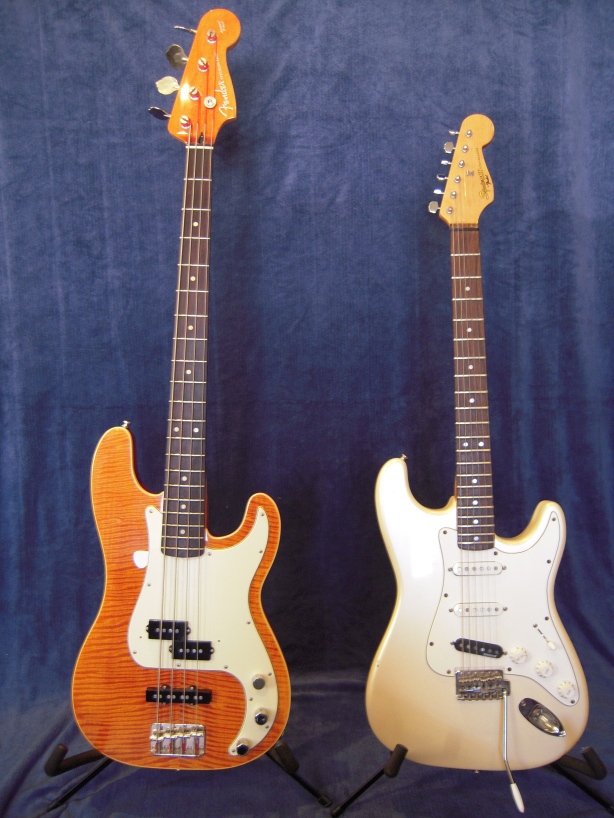It has been two weeks to the day since I attended this music festival and there is still so much left to say about it. Its continued occupation of my consciousness has proven inescapable. I have no choice but to continue babbling on about it before I resume the blog as usual. After having my brain melted time and time again by the heat and the outstanding performances by Radiohead, Explosions in the Sky and so many more it’s no wonder I can’t stop. Last week I gave my favorites, but this week a want to talk a bit about the things that bothered me and continue to bother me about the festival.
So it has been a while since I talked about this, but as I said back when I started this blog is about standing up for downtrodden bassists. Unfortunately there was one very talented group at Coachella who felt it was wholly necessary that the crowd never see the bassist (or the keyboardist for that matter). Even many of the rap and solo acts (like actor turned rapper Childish Gambino) had the humility to share the spotlight with their supporting musicians. The duo of Dan Auerbach (guitar, vocals) and Patrick Carney (drums) seemed almost completely unaware of the two supporting musicians standing only 10 feet behind them. I mean it’s not like they have a 20 piece band or something. A simple shout out to bassist Gus Seyffert and a bit more light do a world of good when it comes to respect on stage. The real kicker was some of the guys I was camping with sincerely thought that the Black Keys played without a bassist. In their defense they might have had a few too many chemicals in their systems and the Black Keys did I superb job of hiding their bandmates. This is exactly why this blog exists.
Another thing I observed at Coachella that I found a tad bit alarming was the younger audience’s attention span/concert manners. Now it may be true that many of the artists who played over the two weekends of Coachella were or are destined to be one-hit wonders many of them had much more to offer the audience than just that one hit song. Take for example the brilliant drummer turned songwriter Gotye. I’ve been listening to his music for a bit less than a year and his upside-down Australian musical sensibilities have thoroughly impressed me. It came as no surprise to me that his song “Somebody I Used to Know” took the American charts by storm a couple months ago.
He played probably one of the best sets overall of the entire festival and gathered at least half of the Sunday Coachella crowd. About three-quarters of the way into his set he played his big hit (he hardly even had to sing it thanks to the crowd). As soon as he finished this song about 70% of the crowd left. It really irked me that all people there got out of it was that one hit song. I don’t even understand how people can enjoy a show if they are only there for one song. It takes away from the whole experience especially since throughout the rest of the set (and the sets of pretty much every other group I saw) the folks around me felt it was a great idea to blow smoke in my face or sit on their phones ignoring the actual performance. Manners people.
I guess by going on 4/20 weekend I was kind of asking for some of this stuff to happen, but I have a feeling I wouldn’t have been so bothered if that damned sun would have stopped boiling by Nordic blood. Whatever the case I would totally do it again. I don’t mind if other people want to text or get plastered instead of listen to the music, just as long as they don’t get in my way and at least acknowledge the existence of bass players.

